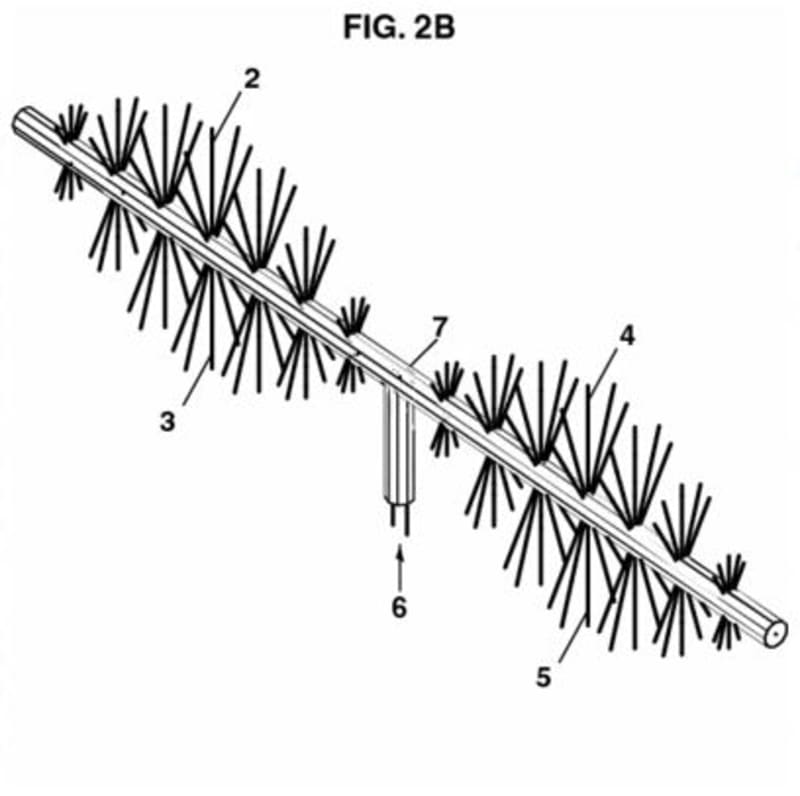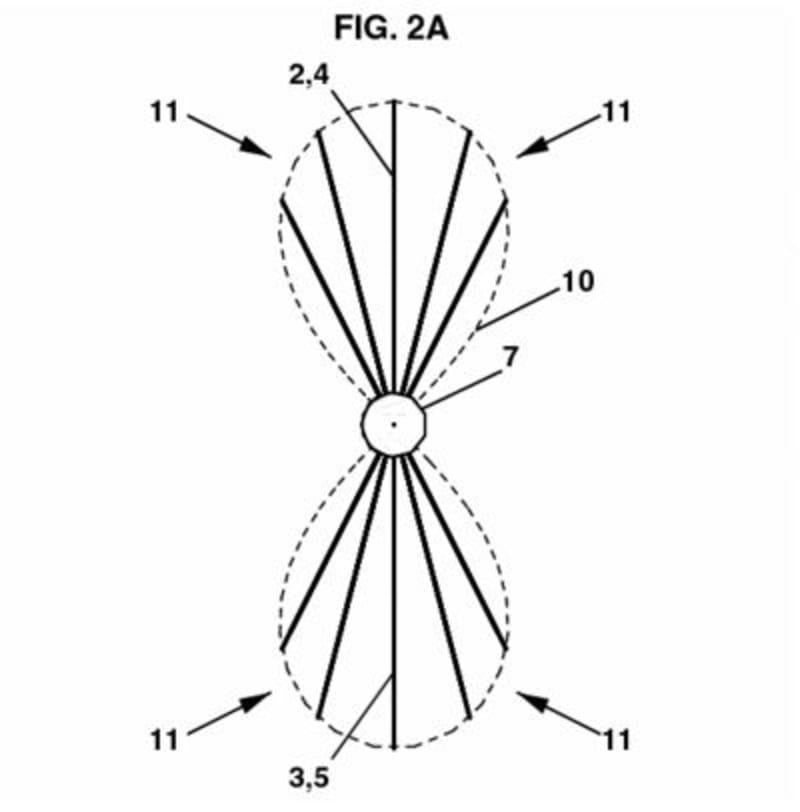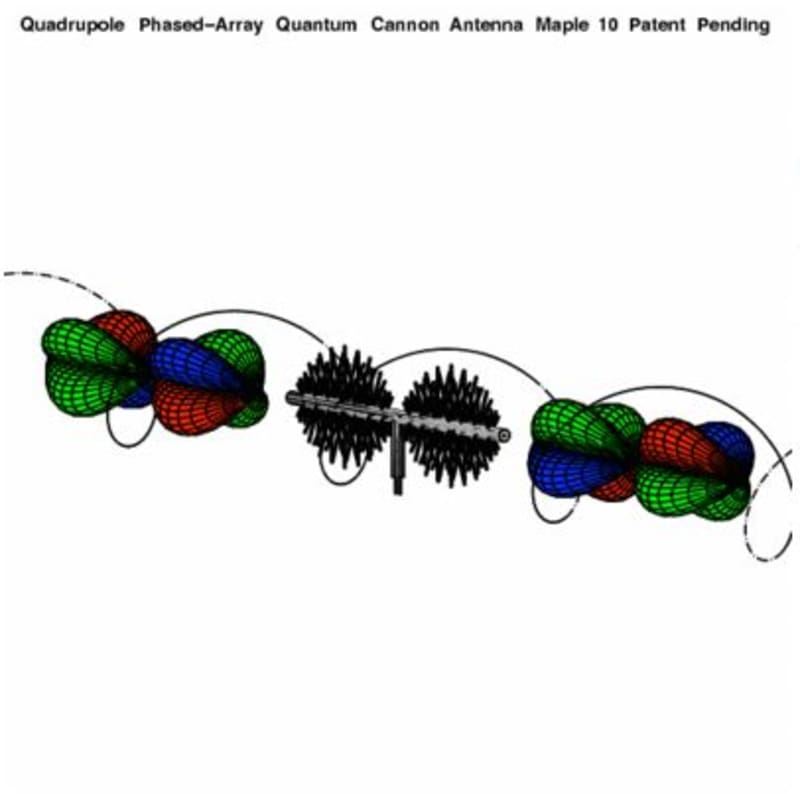Quadrupole phased-array antenna configuration of multiple dipole antenna elements of sinusoidal incremental phase-shifted longitudinal and transverse dimensions; whereby the incremental longitudinal and transverse phase-shifting energization of the quadrupole antenna elements, substantially generates equal and opposite circularly polarized traveling electromagnetic waves of equal and opposite radiation pressure along equal and opposite Sector Power Ratio (SPR) radials. Whereby the present invention (patent pending) embodies a variable dipole antenna element incremental density (i.e., resolution) and includes a suitable dielectric material 8 to achieve the objective of coupling the electromagnetic dipole radiation of 2,3,4,5,11 into the quadrupole radiation of two equal and opposite traveling circularly polarized one wavelength wavetrains (i.e., one wavelength wavepulses) of equal and opposite radiation pressure; wherein for example, a recoil wave 2,5,11 moves to the left in FIG. 2B and a projected wave 3,4,11 moves to the right along the equal and opposite SPR radials of the quantum cannon antenna boresight.
Inventor's spin-stress pressure tensor coupling of Einstein-Maxwell gravitoelectromagnetic (GEM) cross products utilizes gravitational scalar energy density analysis of NASA website (see October 2010 preprint ref. [68] Kolecki, J). Invention new physics extends short wavelength quantum spectrum properties into classical electromagnetic spectrum via complex plane one-turn per wavelength 1:1 circular polarization (i.e., quantum angular momentum ?) of quanta directed along equal and opposite radiation pressure radials. Classical radiation energy is conceptualized as a stream of photons (i.e., quanta) wherein energy is averaged over one wavelength, wherein presently applied signal power level intensity generates corresponding number of in-phase-polarized quanta. Laser-like frequency domain radiation refines imaging and scanning anti-alaising to Raman effect “universal fingerprint” non-linear typecasting signals. Inventor's incremental phase-shifting equations (available online, see below) wherein energy is calculated the same as probability and mass, render in pascals the photon and electron gauge group as R4 self-adjoint operator SO(1,3)yy and SO(1,3)zz equation of state covariant GEM quadrupole lemniscate spin-stress pressure energy density tensor ordinary differential equation (ODE) finite element C4 multi-valued computational fluid dynamics (CFD) matrix elements, as the basis for spin-stress pressure energy density tensor one-turn per wavelength 1:1 R4 wavetrain C4-wavepacket integrations, which are compressive/dispersive of the cosmological vacuum energy density according to shorter/longer wavelengths.
October 2010 preprint: MindPapers 8..3a. Consciousness and the Interpretation of Quantum Mechanics: Simulated Reality Hologram Matrix State Space http://consc.net/mindpapers/8.3a
July 2010 Maplesoft Application Center, Quantum Mechanics Section: Simulated Reality Hologram Matrix State Space “click-through calibration check” http://www.maplesoft.com/applications/Category.aspx?cid=184
Currently at the time of this filing the 2012 version of the manuscript is under review by a mathematical physics journal.
The present new physics experimental and commercial interest experimentally extends the multi-physics simulation COMSOL RF Module frequency domain finite element basis as multi-valued covariant GEM ODE R4 wavetrain finite elements path integrating along multi-valued spin-weighted Fourier transform spin axes C4 wavepacket world lines.
Commercial applications involve a range of center wavelength of operation dimensions (micrometer, millimeter) small enclosures, extending non-destructive scanning, imaging and material typecasting of biological, medical diagnostic, and explosives detection. The invention manufactures to precise tolerances via current MOEMS/MEMS, 3D printing prototype technologies.
Like this entry?
-
About the Entrant
- Name:David Harness
- Type of entry:individual
- Software used for this entry:Maple 10
- Patent status:pending








